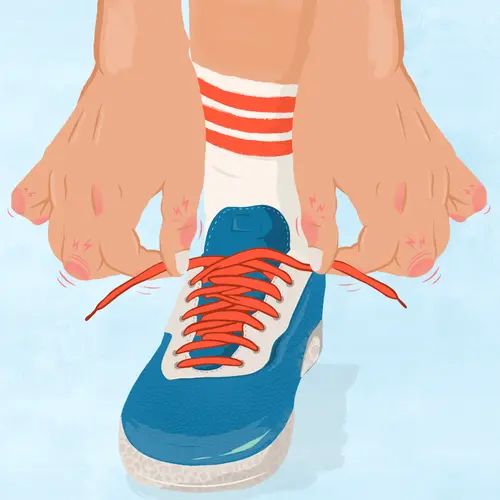Biologics treat rheumatoid arthritis (RA) by targeting parts of your immune system that fuel inflammation. These drugs work very well to slow RA and relieve pain, swelling, and other symptoms. So why quit a good thing? There are a few reasons why you might need to stop taking a biologic.
For one thing, the drug you're on might not help your symptoms. Side effects are another reason to stop these drugs.
"There is an increased risk of infection, and sometimes the infection is so severe that the biologic must be stopped, at least temporarily," says Nilasha Ghosh, MD, a rheumatologist at the Hospital for Special Surgery.
Other side effects, like nausea or headaches, aren't as serious. But they can affect your quality of life enough to make you want to get off the drug.
When to Take a Break From Your Biologic
Sometimes you don't need a permanent breakup with your biologic, but you do need a brief vacation. There are a few reasons why you might stop these medicines for the short term.
You're sick. Biologics suppress your immune system to stop it from attacking your joints. But this also keeps it from fighting off germs when you get an infection.
"If they become sick, we err on the side of caution," says Rebecca Haberman, MD, rheumatologist at NYU Langone Health. "We stop the medication so their immune system can take that time to fight the bacteria or virus."
You're getting vaccinated. There's some evidence that biologics might reduce your response to vaccines, although most people who are vaccinated while on biologics do get enough protection. You and your doctor can decide whether you should stop taking your biologic until after you've gotten a vaccine, Ghosh says.
You're having surgery. You don't need to stop taking biologics for a minor procedure like removal of a skin cancer lesion. But your doctor might recommend stopping your biologic for a few weeks before open surgery like a knee or hip replacement. That's because these drugs can increase your risk for infection.
You're pregnant. Pregnancy isn't a reason to go off biologics altogether. But you might need to switch drugs. Certain biologics, like adalimumab (Humira) and certolizumab (Cimzia), are safer for a growing baby than drugs such as golimumab (Simponi) and rituximab (Rituxan).
Even if you don't like the idea of being on medication during your pregnancy, it's a good idea to keep taking it. "If a patient has active RA, it's probably safer for them and their baby to stay on a biologic, rather than going through the pregnancy with a lot of inflammation and pain," Haberman says.
You feel better. The goal of taking biologics is to put you into remission. Once you do get to remission, you might try to take a break from the drug. Just be aware that your symptoms could come back.
What to Expect When You Stop
"When patients go off a biologic, there may be a worsening of their arthritis symptoms or a flare of their disease," Ghosh says. Having more serious RA to start with could increase the chances that you'll have a symptom rebound.
In one study, people with stable RA who stopped taking a TNF inhibitor were about three times more likely to have a disease flare within the next 12 months than those who stayed on their medication. But almost half of the people in that study were able to stop their biologic without having more symptoms.
One way to reduce the risk of flare-ups is to taper off these drugs slowly. You can do this in one of two ways: Lowering the dose or increasing the amount of time between doses.
"There is a subset of patients who are able to taper their medications and remain in remission," Ghosh says. Your doctor can't predict for sure whether you will flare up again, but research shows that you're more likely to taper off without relapsing if you:
- Are taking a biologic for the first time
- Are young
- Have been in remission for a long time
- Don't also take a steroid
- Have lower levels of C-reactive protein (CRP), a blood marker of inflammation
The good news is that if you do flare, going back on a biologic should put a stop to your symptoms.
Talk to Your Doctor
No matter your reason for wanting to stop your biologic, get your doctor involved in the decision. It's never a good idea to go off a drug on your own.
Stopping biologics could make your arthritis flare. A relapse not only affects your quality of life, but could also lead to more joint-damaging inflammation, Ghosh says.
If your symptoms haven't improved on your biologic, or if you're having side effects, you do have other options, Haberman says.
"If you come to your doctor and say, 'I really can't tolerate this,' they will work with you to find the medication that you can tolerate," she says. "Because the best medication for you is the one that you will take."

